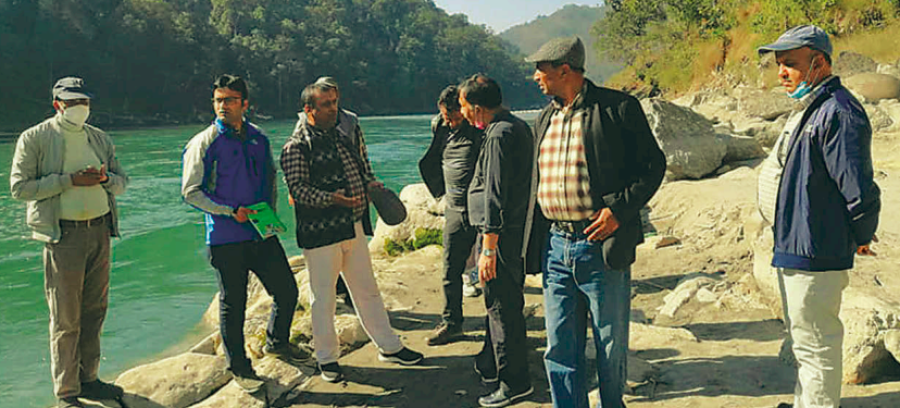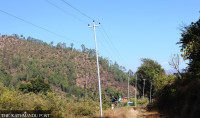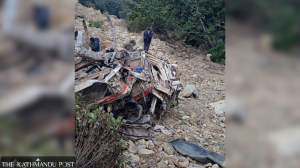Karnali Province
Government plans ambitious water project for Birendranagar
The drinking water project will be funded by the federal, provincial and local governments, authorities say.
Chandani Kathayat
The government has come up with an ambitious plan to lift water from the Bheri River and supply it to Birendrnagar, the provincial headquarters of Karnali.
Anticipating a possible population growth in Birendranagar, authorities are all set to initiate the Surkhet Valley Drinking Water Project by lifting water from the nearby Bheri River. The project is estimated to supply drinking water to Birendranagar for at least 30 years.
“The construction work of this project will begin soon. We plan to complete the work within three years,” said Suryaraj Kandel, the deputy director-general at the Department of Water Supply and Sewerage. “We will install modern devices to control the flow of water and its distribution.”
While speaking at an interaction programme in Birendranagar on Monday, Kandel said that the Surkhet Valley Drinking Water Project is projected to be the biggest drinking water project in the country after the Melamchi Water Supply Project.
The project will be funded by the federal, provincial and local governments.
A team of technicians and experts from the department recently visited the project site and identified the possible location to make an intake to lift water. According to Prashant Malla, the intake will be constructed 574 metres upstream from the confluence of the Bheri River and Jhupra stream in Birendranagar.
“Water from the Bheri River will be lifted to a treatment plant around 400 metres above and supplied to the main reservoir tank in Amritdanda, which is around seven kilometres from the treatment plant,” said Malla. “We are still discussing the number of water lifting machines that should be installed.”
The drinking water project plans to supply water to each house in Birendranagar.
“Structures and pipelines that are already in use will also be utilised for the project. Pipelines will be installed in some areas with the possibility of human settlement in future,” said Malla.
The estimated cost of the mega project is around Rs 6.67 billion. According to Kandel, water distribution will cost around Rs 4.63 billion.
“We will soon begin the tender bidding process for the construction of the drinking water project after studying the possible sources that could be managed by three different governments,” he added.
The construction of the water lifting project was supposed to start three years ago. The construction of the intakes began in the last fiscal year but it was affected as floods swept away the structures.
The federal government had allocated Rs 60 million budget in the last fiscal year of 2019/20 and Rs 20 million in 2018/19 for the project. The Karnali Province government had also issued Rs 500 million in the last fiscal year. But all the amount froze, as the authorities could not initiate construction work.
Keeping in view the possible shortage of drinking water in Birendranagar in the near future, the provincial government has also kept the water lifting project in its priority list.
“We have prioritised the Surkhet Valley Drinking Water Project through an integrated development plan of Birendranagar,” said Prakash Jwala, the provincial minister for financial affairs and planning. “Our budget froze in the past, as the project work could not be initiated. We won’t let the budget freeze this time.”
Birendranagar is an emerging city of Karnali Province. According to the data available at Birendranagar Municipality, the population of Birendranagar is around 200,000 who require nearly 560 litres of water per second.
“But we can currently supply only 152 litres of water per second. Moreover, the water supply is reduced by nearly 50 percent in the dry season,” said Kulmani Devkota, chairman of Surkhet Valley Drinking Water and Sanitation Corporation.
It is projected that the population of Birendranagar will reach around 384,000 within 30 years.
“The water lifting project can supply water as per the need of Birendranagar residents for the upcoming 30 years,” said Devkota.




 13.34°C Kathmandu
13.34°C Kathmandu












